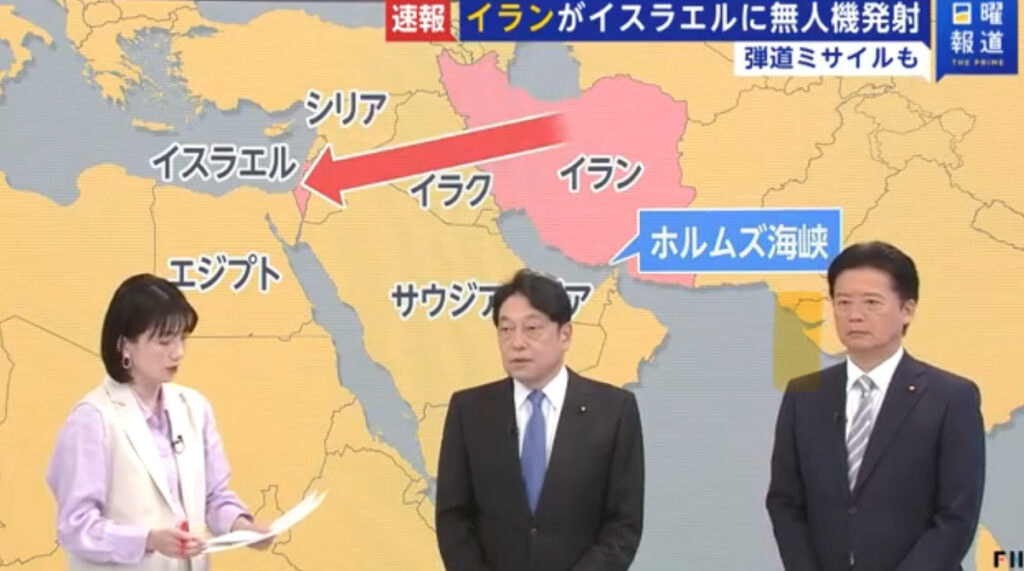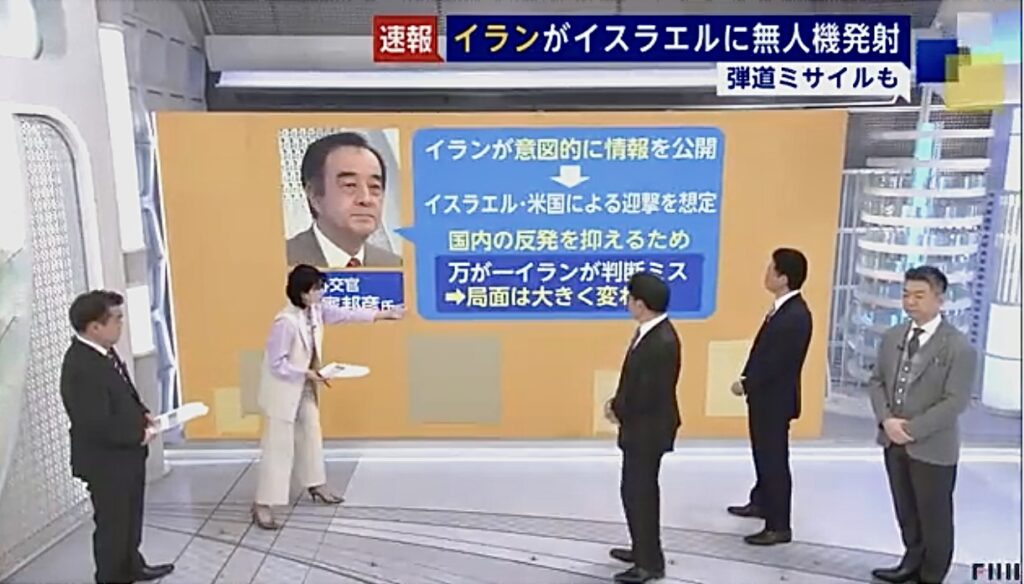



TOKYO: Japanese politicians have regarded the Iranian attacks on Israel as “restrained,” as both the United States and Israel were informed in advance, and it is believed that Tehran felt it must act for domestic reasons.
Former Defense Minister ONODERA Itsunori of the ruling Liberal Democratic Party and former Foreign Minister GENBA Koichiro of the Constitutional Democratic Party participated in Fuji TV’s “Sunday News THE PRIME” to discuss Iran’s launch of retaliatory attacks on Israel and assess the possible future course of events.
Although Onodera, who also chairs the Liberal Democratic Party’s Security Research section, branded the situation as a crisis, he said it still seems to be under control and contained and would not escalate into a full Middle East war involving Iran and Israel.
“If the attacks are not focused on central locations like Tel Aviv and both sides retaliate measuredly, there might still be room for calm discussions,” Onodera said. “However, if this escalates into second or third waves targeting Tel Aviv or the core of Israel, a Middle East war will become inevitable. The international community, including Japan, should urgently send a strong message to ensure this is contained.”
He added that there could be a huge economic impact on Japan if a major Middle East war erupted. Japan gets 90 percent of its oil from the region.
Former Foreign Minister Genba commented: “Looking at the current situation, attacks are being carried out in a restrained manner, but I fear that there will be an escalation in which Israel makes a reply attack and the United States becomes involved. We must control the situation so that this does not happen.”
Genba said Iran felt compelled to retaliate in response to Israel’s deadly attack on an IranianConsulate in Syria, but mainly for domestic reasons. “We must control these attacks so that the situation does not escalate into another attack by Israel or prompt US involvement,” he said.
Former Osaka Governor HASHIMOTO Toru also participated in the program. “The only way to settle the issue is to compromise and come to some agreement while saving face for each side,” he said, adding that Japan and the West should not condone Israel’s attack on the Iranian Consulate in Syria.
“Although everyone knows that embassies are used as intelligence-gathering or military facilities, the international community operates under the premise that embassies should not be attacked,” Hashimoto pointed out. “Regardless of the reasons, attacking embassies is unacceptable.”
MIYAKE Kunihiko, a former diplomat and a Middle East expert, said he sees the essence of the war between Israel and Hamas as a proxy war between the United States and Iran, “as Iran is cautious about confronting the United States directly.” He also believes that the Israeli attack on the Iranian Consulate in Syria made it impossible for Tehran to contain the domestic backlash, so it felt it had to carry out Sunday’s limited attack.
“However, if Iran makes a mistake or misjudgment and launches a large-scale attack that causes significant damage to Israel, the situation could change dramatically,” Miyake warned.